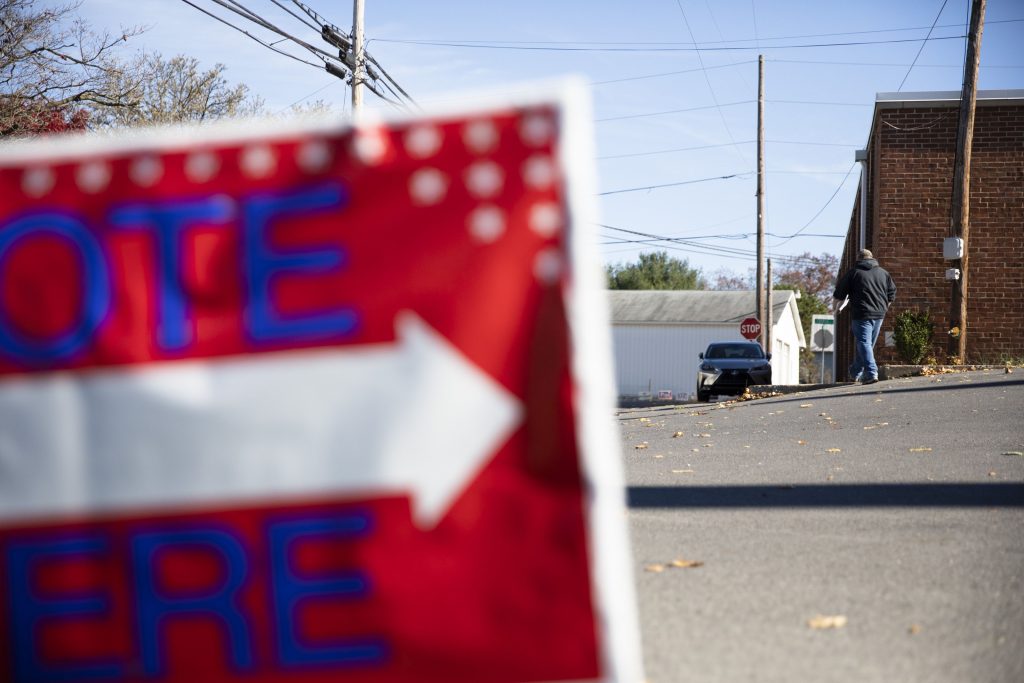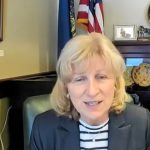by Kate Huangpu of Spotlight PA
Photo courtesy of Amanda Berg / For Spotlight PA
Spotlight PA is an independent, nonpartisan, and nonprofit newsroom producing investigative and public-service journalism that holds power to account and drives positive change in Pennsylvania. Sign up for our free newsletters.
Millions of voters are expected to cast ballots during Pennsylvania’s April 23 primary, choosing candidates to represent the Democratic and Republican parties in November.
More than 1 million registered voters will also be excluded from that process.
Pennsylvania is one of 10 states with a closed primary system. That means only voters who are registered to a major party may participate in its primary election.
More than 1.3 million people in Pennsylvania are registered without a political affiliation or with a third party. Such voters can still participate in statewide referenda, local ballot initiatives, and special elections that coincide with the primaries.
Good-government advocates and lawmakers from across the political spectrum want to change this system, arguing that the closed primary system disenfranchises independent and third-party voters.
» NEW EVENT: Join Spotlight PA at 6 p.m. April 29 for a virtual interview with Nick Troiano, author of The Primary Solution, a new book on how partisan primaries are fueling partisanship and what can be done about it. This is a member-only event, but you can join by making a gift to Spotlight PA now. Currently a member? Email us to RSVP for free.
They also say that if the state’s primaries were open, unaffiliated voters would serve as a mitigating force that could dilute support for extremist candidates and decrease polarization.
Pennsylvania’s five most recent governors signed an open letter last spring that voiced support for the change, writing that “our political system has changed over the past two decades” and now requires the state to adjust its approach.
“Primary elections are often decided by a few more extreme voters. Candidates elected by those more extreme voters don’t have as much incentive to engage in the compromise and give and take that is so essential to effective governing. Adding independent voters to the primary mix will help,” the governors wrote.
The good-government group Committee of Seventy has an initiative, Ballot PA, dedicated to advocating for open primaries. David Thornburgh, who chairs the initiative and is the son of late Republican Gov. Dick Thornburgh, said he sees the upcoming election as a missed opportunity.
“The bad news is here comes another primary with 1.2 million voters locked out,” Thornburgh said. “The good news is that there continue to be windows of opportunity and momentum.”
There have been pushes in the legislature to open Pennsylvania primaries over the past few decades, but none have gotten very far.
In 2019, the GOP-controlled state Senate voted 42-8 for a bill that would allow independents to participate in either the Democratic or Republican primary election. The legislation, sponsored by then-President Pro Tempore Joe Scarnati (R., Jefferson), was not considered by the state House.
At the time, the lower chamber was controlled by Republicans. After Democrats won control of the state House in 2022, supporters of open primaries expressed hope that the new majority would prioritize such a measure.
So far, that hasn’t happened.
The chamber’s State Government Committee passed two bills on the subject last fall — one sponsored by a Democrat, one by a Republican. Only Democrats on the panel voted in favor of the bills.
Both bills would allow unaffiliated voters to choose which major party primary to participate in. The legislation introduced by state Rep. Marla Brown (R., Lawrence) goes a step further and would allow third-party voters to also make that choice.
State House leadership hasn’t called up either measure for a vote, and Majority Leader Matt Bradford (D., Montgomery) has not come out in support or against the bills.
A spokesperson for the state House Democratic caucus said it is “still reviewing the bill.”
Open primary supporters also face major hurdles in the state Senate
The chair of the upper chamber’s State Government Committee, state Sen. Cris Dush (R., Centre), previously told Spotlight PA that he is opposed to opening the state’s primaries. Dush controls which bills are considered by the committee, through which any open primary legislation would need to pass.
If a bill did advance out of the committee, it would still need to be called up for a floor vote by Majority Leader Joe Pittman (R., Indiana). A spokesperson for the state Senate Republican caucus said that discussions on open primaries are “ongoing” but its focus is on bills that would “restore voter confidence in our electoral focus.”
Despite the lack of legislative action, Thornburgh is hopeful that this upcoming election season will further highlight the need to open primaries, as lawmakers in both parties condemn extremism.
“We’re in a political season now and that will be brutal,” he said. “We’re trying to open up that conversation to make sure that includes independents.”
BEFORE YOU GO… If you learned something from this article, pay it forward and contribute to Spotlight PA at spotlightpa.org/donate. Spotlight PA is funded by foundations and readers like you who are committed to accountability journalism that gets results.




